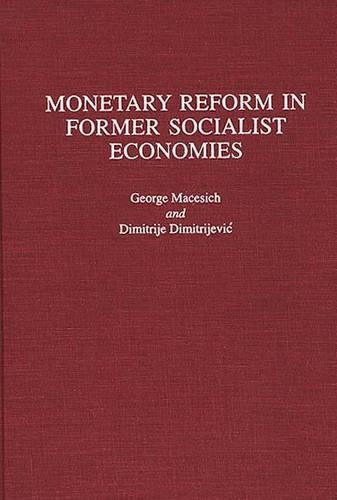
Monetary Reform in Former Socialist Economies
(Hardback)
Publishing Details
Monetary Reform in Former Socialist Economies
By (Author) Dimitrij Dimitrejevic
By (author) George Macesich
Bloomsbury Publishing PLC
Praeger Publishers Inc
12th December 1994
United States
Classifications
Tertiary Education
Non Fiction
332.4947
Physical Properties
Hardback
160
Description
Radical change seems to be the only panacea for inefficient economies. This work takes a look at the financial system and its function in socialist central planning economies. It provides an explanation of the partial reforms in socialist economies from the 1950s to 1988. With Yugoslavia as the example, the work discusses financial and monetary reforms and adjustments in socialist economies. An explanation of monetary reform includes the changes in the role of financial intermediation and monetary policy goals, target and instruments, and methodological questions. General conclusions about recent monetary reforms in socialist economies completes the discussion. Scholars, students, and those interested in comparative, developmental, international, and historical economics will find this a valuable resource and interesting reading. It is an especially useful book at the graduate and seminar level.
Author Bio
GEORGE MACESICH, Professor of Economics at Florida State University, and the founding director of the Center for Yugoslav-American Studies, Research, and Exchanges and the Institute for Comparative Studies, Research, and Exchanges at Florida State. He is the author of over thirty books, including Successor States (Praeger, 1994), Monetary Policy and Politics (Praeger, 1992), Reform and Market Democracy (Praeger, 1991), Monetary Reform Cooperation Theory (Praeger, 1989). DIMITRIJE DIMITREJEVIC is presently Professor of Economics, Faculty of Political Science, University of Skopje and a visiting Professor of Economics at Florida State University's Center for Yugoslav-American Studies, of the national Bank of Yugoslavia and the author of numerous books, including The Monetary Supply Process (Praeger, 1991) with George Macesich.
